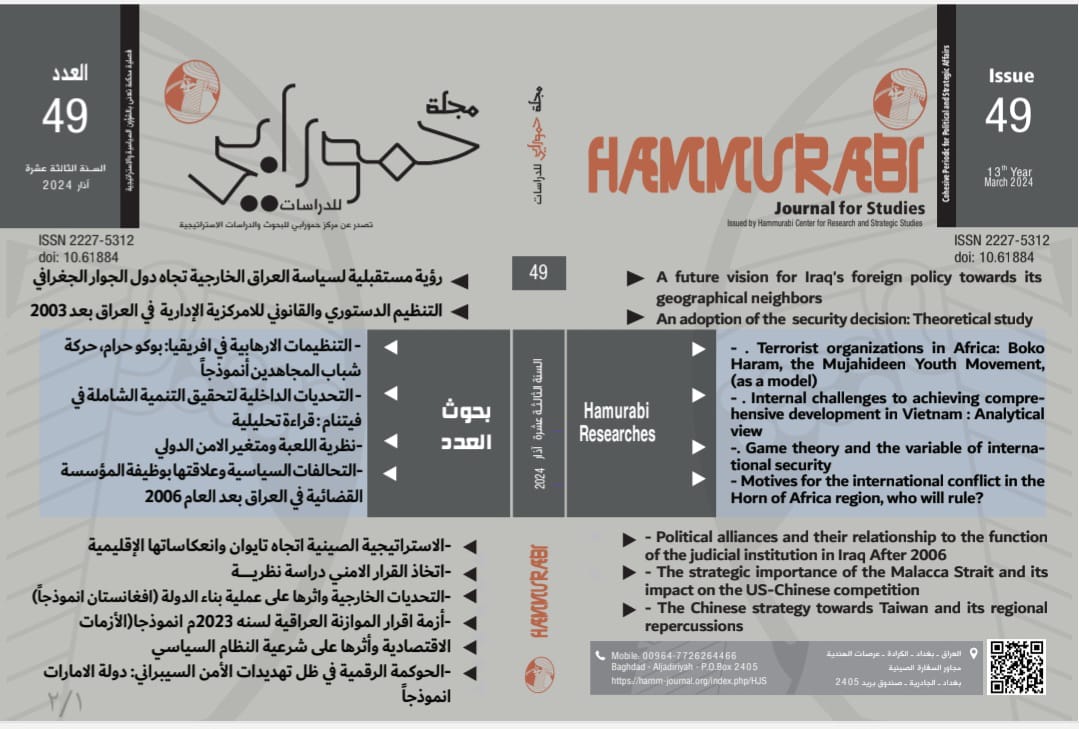External challenges and their impact on the state-building process (Afghanistan as an example)
DOI:
https://doi.org/10.61884/hjs.v13i49.433Abstract
Since 2001، the state-building process in Afghanistan has faced several challenges at the internal and external levels. On the external level، the American occupation had a prominent role in the failed state-building process, as after the attack on the United States of America, there was a qualitative shift in the position on terrorism, which became the main threat to the American nationalist security. The Islamic Republic of Afghanistan was one of the first countries that America placed on the anti-terrorism list in order to eliminate Taliban and Al-Qaeda, moving away from diplomatic formulas for resolving international disputes. The result of this was the outbreak of an unequal war in which thousands of civilians were killed without achieving a victory for Al-Qaeda or Taliban. Rather, the latter regained its previous positions and the country became a battlefield for attacking government strongholds and NATO forces. The importance of its geographical location has made it coveted by many regional and international countries, which has caused the emergence of many problems of instability that the Afghan people have suffered from since ancient times until the present.
Keywords: Afghanistan, American occupation, Pakistan, Islamic Republic of Iran.












